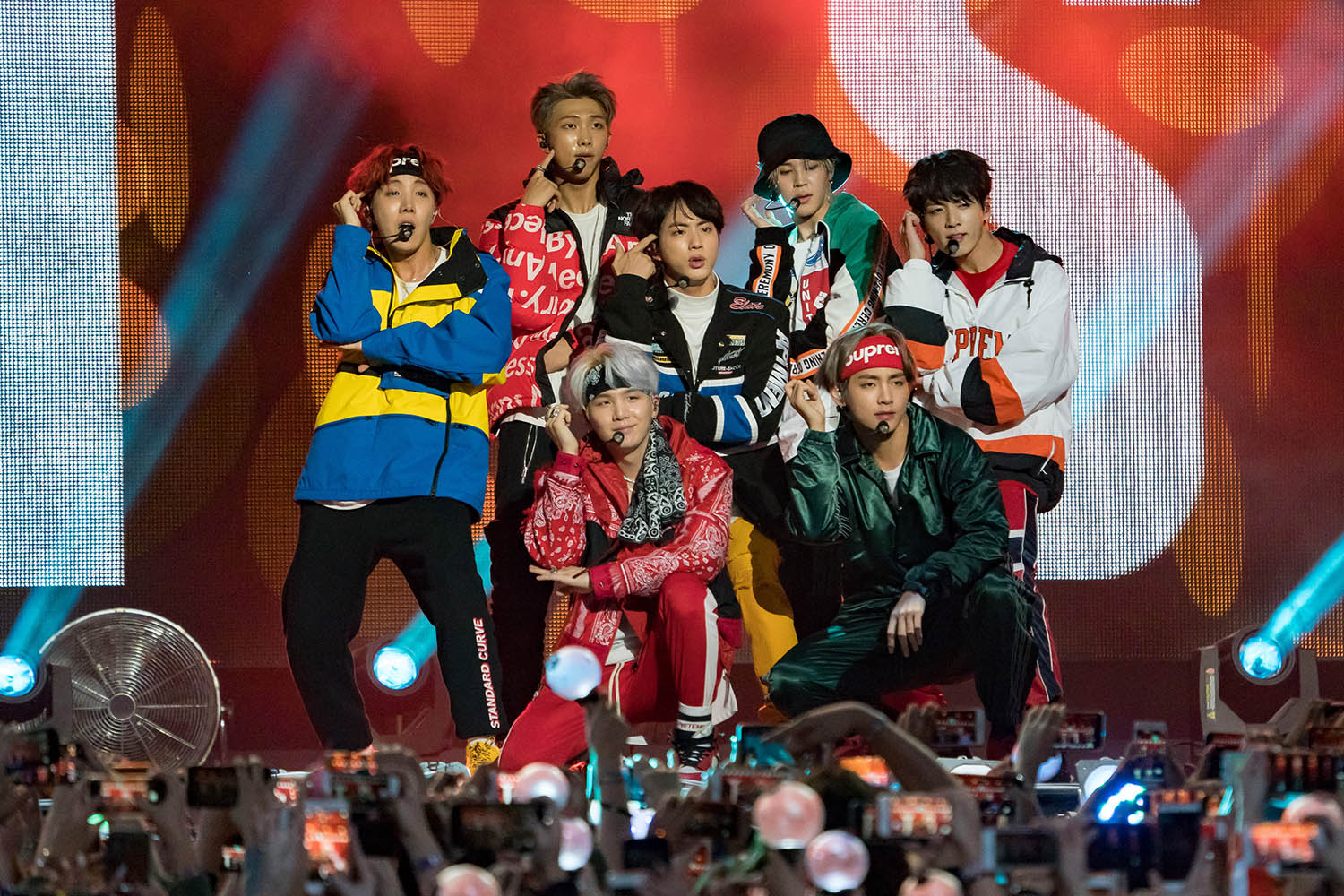
Fans of the Korean band BTS have taken it upon themselves to defeat the world’s despots and populists
On 14 July Korean pop star Jungkook released ‘Seven’, a single with a hint of UK garage describing a week spent loving his partner right. All comparisons with Craig David stop there. The video shows Jungkook destroying restaurants and launderettes, inciting tropical storms and ultimately causing his own death with the power of his love until the girl finally takes his hand.
‘Seven’ debuted at number one on Spotify on the day of release, with a staggering 15,995,378 streams. Only two songs in Spotify’s history, both from Taylor Swift, have achieved higher first-day streams. It’s also the fastest song by a male solo artist to surpass 30 million streams on the platform. It looks set to hit number one in the UK this weekend.
So what? Jungkook is a member of BTS, the biggest K-Pop band in the world. BTS stans (fans) call themselves the BTS Army – an acronym for “Adorable Representative M.C. for Youth”. As of 2022, this is a more literal term. The band and its followers are now so massive they’re not just influencing the charts, but world politics too.
BTS: A beginner’s guide. BTS – or Bangtan Sonyeondan, which translates roughly as Bulletproof Boy Scouts – debuted in South Korea in 2013, crossed over into the global market in 2017 as part of the Korean Wave and sold out Wembley Stadium in 2019 despite singing in Korean. In 2021, they became the most-streamed group of all time on Spotify, overtaking Coldplay.
They’re in the army now. The band have taken a hiatus for their national service, enlisting in South Korea’s military at different points over the next 18 months. First in was BTS Jin in December last year. Jungkook is one of the last to have his Elvis moment, due to join the army in June 2024, giving him a temporarily clear run at building his solo career.
Never mind the Russians. In February, technology magazine MIT Review followed K-pop stans’ intervention in both the Chilean and the Brazilian presidential elections. In Chile, right-wing Jose Antonio Kast had won the first of two rounds of voting when “Kpopers for Boric” launched digital campaigns, threw community-building events, and ran voter information drives backing his opponent. Gabriel Boric won. In 2022, BTS fans mobilised behind Luiz Inácio Lula da Silva who went on to beat Brazil’s far-right incumbent Jair Bolsonaro.
K-pop stans also made headlines in 2020 when they reserved tickets for Donald Trump’s Juneteenth rally in Oklahoma leaving a nearly empty auditorium. When the band donated $1 million to Black Lives Matter, the BTS Army matched it in 24 hours and hijacked the White Lives Matter hashtag with K-pop GIFs. They’ve trolled QAnon, protested the South Korea/Japan trade dispute and BTS fans unable to get tickets to 2022’s Permission to Dance on Stage tour donated the money to the UN High Commissioner for Refugees in Ukraine. They’ve even organised a blood donation programme in Thailand.
Sing when they’re losing. K-pop backing for Leni Robredo in the Philippines presidential race didn’t swing the race her way and pro-democracy rallies in Myanmar haven’t scared the junta. The Chinese Communist Party has effectively banned K-pop fandoms, closed down online fan clubs and prevented K-pop stars from performing in China. They call it the wrong side of history for a reason.
Additional reporting by Eden Smith
Photograph RB/Bauer-Griffin/GC Images











